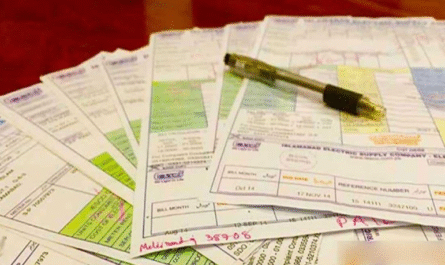FB
In a significant move aimed at widening the tax net and discouraging undocumented financial activity, the Chairman of the Federal Board of Revenue (FBR) has successfully convinced a Senate panel to approve an increase in tax on cash withdrawals by non-filers. The decision is part of the government’s broader strategy to improve tax compliance and strengthen the country’s revenue base amid mounting fiscal challenges.
A Push for Documentation
Non-filers — individuals who are not registered in the tax system — often operate in the cash economy, making it difficult for authorities to track transactions and ensure fair tax contributions. By increasing the tax rate on cash withdrawals from banks by non-filers, the FBR aims to discourage cash-based dealings and encourage more people to become active taxpayers.
The Senate Standing Committee on Finance approved the proposal after detailed deliberations, acknowledging the urgent need to incentivize documentation and penalize non-compliance. The revised measure is expected to take effect in the new fiscal year, following its formal inclusion in the Finance Bill.
What the New Tax Means
Under the updated policy, non-filers will face a higher withholding tax rate when withdrawing large amounts of cash from banks. While the exact percentage of the tax increase has not been officially disclosed, reports suggest it could be a significant jump from the previous rate, which stood at 0.6% for certain transactions.
This increase is designed to make it costlier for individuals who avoid filing tax returns to continue operating outside the documented economy. For regular filers, however, the tax rate on such transactions remains unaffected, further reinforcing the benefits of tax compliance.
FBR’s Ongoing Reforms
FBR Chairman Amjad Zubair Tiwana has been at the forefront of efforts to modernize the tax system, reduce leakages, and broaden the taxpayer base. Speaking at the Senate panel, Tiwana highlighted that Pakistan’s tax-to-GDP ratio remains among the lowest in the region and that measures like this are essential to reversing the trend.
“We cannot sustain our economy when a small percentage of citizens are carrying the entire tax burden,” he stated. “This move will create a necessary nudge for non-filers to come into the tax net and contribute fairly.”
The FBR has also been working to integrate digital tools, streamline return filing processes, and simplify registration to make it easier for citizens to join the formal economy.
Mixed Reactions from Stakeholders
The proposal has drawn mixed reactions from various quarters. Tax experts and economists have generally welcomed the decision, noting that penalizing non-compliance is a globally accepted practice to encourage documentation.
However, some business associations and banking sector representatives have expressed concerns about the possible impact on liquidity and cash flow, especially for small businesses that rely on cash transactions. They argue that the government must strike a balance between enforcement and support, particularly in an inflationary environment.
Way Forward
This tax hike is part of a broader set of fiscal reforms aimed at stabilizing Pakistan’s economy, enhancing transparency, and fulfilling commitments to international financial institutions. It is expected to generate additional revenue and create a more equitable tax system in the long run.
At the same time, authorities must ensure that the increased tax burden does not fall disproportionately on those without the digital or financial literacy to navigate the tax system. Outreach, education, and support mechanisms will be crucial in making the transition smoother for all stakeholders.



